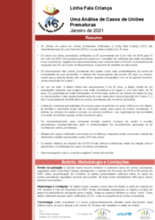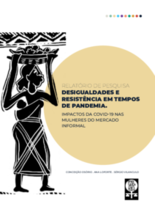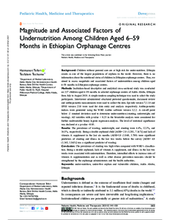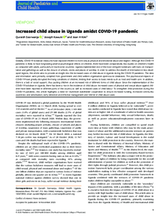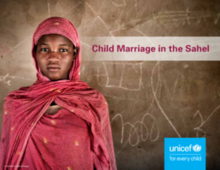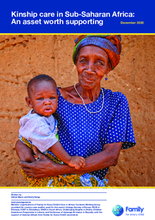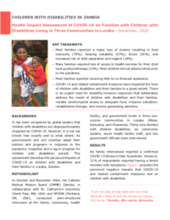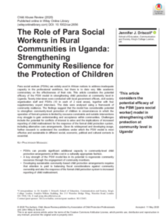Displaying 161 - 170 of 665
Âmbito de aplicação: O âmbito deste resumo temático é examinar casos de uniões prematuras registados pela Linha Fala Criança, abrangendo o período de Fevereiro de 2018 a Novembro de 2020.
Nesta pesquisa temos como objectivos centrais:
1. Identificar no contexto mundial, regional e nacional quais são as estratégias e as políticas públicas relativamente à situação das raparigas e mulheres.
This study aimed to assess magnitude and associated factors of undernutrition among children aged 6–59 months in Ethiopian orphanage centres.
This paper examines the effects of Human Rights Education (HRE) on youth in the impoverished community of Trevo in Mozambique, particularly orphans and vulnerable youth.
This study assessed educational opportunities and the support available to orphans and vulnerable children (OVC) in Bagamoyo District to determine socioeconomic and psychological factors that limit access to education.
In order to address the dearth of information in less developed regions, this article aims to provide an insight into the increased cases of child abuse in Uganda during the COVID‐19 pandemic.
This brochure from UNICEF provides an overview of child marriage in the Sahel, a region spanning the northern portion of sub-Saharan Africa.
This paper argues that kinship care – the care of children by relatives or friends of the family – represents the greatest resource available for meeting the needs of girls and boys who are orphaned or otherwise live apart from their parents.
Catholic Medical Mission Board Zambia (CMMB), SPOON, and St. Catherine's University conducted this Health Impact Assessment (HIA) in Lusaka Province, Zambia, to understand the disparate impact that COVID-19 and the containment measures had on children with disabilities and their families. his two-phased assessment is designed to gather evidence about the impact through seven domains: COVID-19 knowledge and practices, food consumption, housing and livelihood, child safety and risk of separation, child health and wellness, parental and child stress, and education.
This article considers the potential efficacy of the para social workers (PSW) model in strengthening child protection at community level in Uganda.

